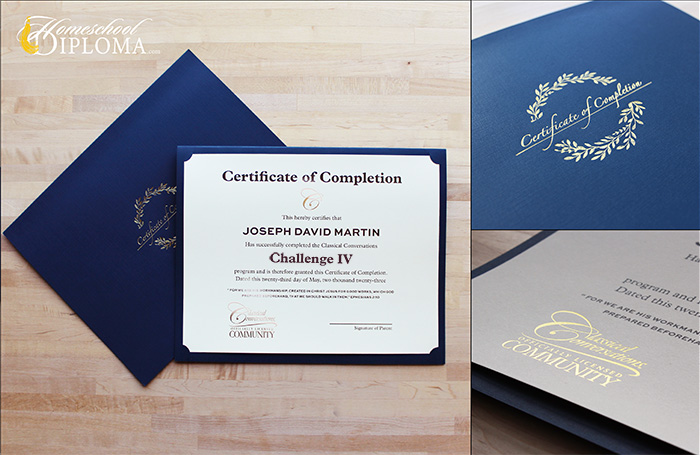Planning a graduation can be a big project – even if it’s for a single student. But bringing together a large group of homeschoolers (by which we mean about 10 or more) comes with a “special” set of challenges! You’ll encounter diverse expectations on everything from cost to cake flavor. You’ll explore the limits of your patience as you extend deadlines – again – to accommodate your stragglers. And you’ll marvel at the different ways people can interpret your (seemingly crystal clear) communication. It’s not for the faint of heart!
But it can also be incredibly rewarding. Graduation is a chance to honor both students and parents, to give thanks to God and to look forward to His calling ahead. Providing that moment for your families is a blessing to them and elevates homeschooling in the public eye. It’s worthy work!
Over the years, we’ve spoken with and assisted hundreds of homeschool graduation planners. We’ve asked about their experiences, and we’ve observed a few key behaviors that consistently lead to success. We hope this advice is a help and encouragement to you as you undertake this adventure!
1. Start Early
A simple graduation can be planned in just a few weeks if necessary; however, most veteran leaders say, “Start early!” We recommend that you begin in the fall for a spring event. This gives you time to solidify key decisions before inviting seniors to participate, and ample time to enlist volunteers, reserve a venue, and hammer out other details.
But what if it’s mid-March, and you’re just getting started? The good news is that urgency can make some decisions much simpler! Instead of choosing from all the possibilities in the world, you’re limited to what’s still possible with the time you have. And you do still have time to plan a great event – but you’ll have to work fast. Solidify your venue and keynote speaker as soon as possible, then develop a ballpark budget and ask for commitment from your families even before everything is finalized. You’ll be able to accomplish more if you delegate whole areas of responsibility (i.e. refreshments, decorations, etc.) to a few of your senior’s parents.
2. Define First, then Invite
With a large group of homeschool graduates, it’s simply not possible for everyone to agree on everything. Our advice is to start with the basic decisions before inviting families to participate. By doing so, you are providing leadership that families can more easily unite behind.
Here are some basics to determine before enlisting graduates:
- “Why” – a simple guiding mission statement for the event.
- “Who” – clearly define who may participate as a graduate.
- “What” – spell out a basic ceremony structure, type of reception, and a ballpark estimate of costs.
- “When” – schedules are busy, so set a date early and stick to it.
Then, invite your senior families to participate and offer input on other details:
- Choosing the venue
- Determining how to highlight their graduate: posters, photos, video, etc.
- What music to provide, whether live or taped
- Decorations
3. Set Hard Deadlines with Reasonable Consequences
Deadlines are funny things. You can give people a month to get something done, and they wait until the night of the deadline. (And no, we’re not just talking about college students! We see this all the time with homeschool parents on our discount deadlines.)
Softening your deadline can seem like a good idea, but it introduces a whole new set of problems. Following up with stragglers can become a painful task. If you bend the rules for one family, you feel obliged to bend them for everyone – and soon you’ve lost all structure and are just praying that everything comes together at the last minute.
But a rock-hard deadline with an unreasonably severe consequence doesn’t work either. Are you really going to kick someone out of your graduation ceremony just because they submitted their bio 5 minutes late? Of course not, and people know it – so once again, you’re left without an effective way to encourage timeliness.
But hard deadlines with reasonable consequences are very effective. They’re taken seriously, and most people put in the effort to meet the deadline and avoid the consequence. And when they don’t, you have a clear path to handling the situation. Here are a few examples that we’ve seen bear good fruit:
- “Order your cap and gown by (date) to receive the best discount. After this date, you’ll pay full price.”
- “Submit your graduate bio for the program by (date). If not submitted in time, the program will just include a brief sentence such as: ‘Joshua Smith, 18, is the son of Robert and Julie Smith and is graduating from the Smith Family Homeschool’.”
- “Pay the graduation fee by (date). After this date, the fee increases 15%.”
- “If you have more than 4 guests, you must request extra tickets by (date). After this date, the venue will be solidified and extra tickets will be on a first-come-first-served basis only.”
4. Communicate Clear Expectations
As the leader, your biggest responsibility is to set clear expectations through consistent and clear communication. You will avoid so many problems – confusion, disappointments, and hurt feelings – if everyone is united in their understanding and expectations. One management consultant says, “Say your message seven times, and half of your people will say they heard it once”. So when in doubt, over-communicate. If you suspect that someone is confused, they probably are; follow up to make sure they get the right message.
5. Keep Good Notes for Next Year
Many graduation coordinators are enlisted for one year, and then pass the torch to someone else. But even if you’re in it for the long haul, good notes can help you remember important lessons and make incremental improvements over the years. The most successful graduations we’ve seen are ones where the coordinator passes on a binder (or electronic file) with detailed notes on everything from timelines to toothpicks. This streamlines many of the smaller details and helps the future leader avoid common pitfalls.
6. Don't Give Up!
Yes, it can be challenging – but planning a graduation ceremony is a worthwhile task. Your leadership will create a moment that these honors the efforts of graduates, parents, and communities. You’ll give the watching world a glimpse into the excellence of home education, and you’ll help create memories that will last a lifetime.
If you want help planning your graduation, you’re invited to join our Facebook group, Homeschool Graduation Planners. This group is for anyone planning a homeschool graduation – to connect with others, share ideas and ask questions.


